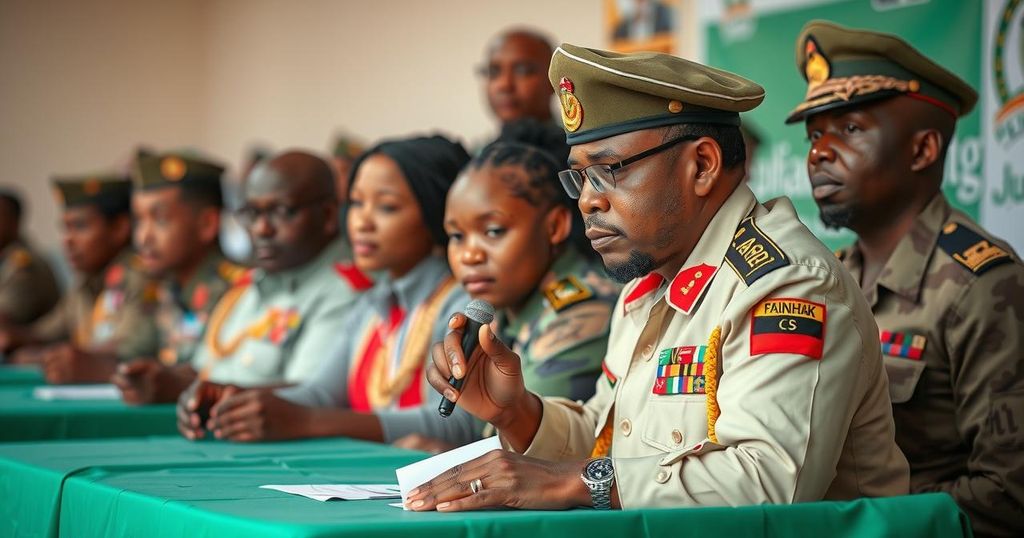Chad Holds General Election Amid Opposition Boycott and Voter Apathy
Chad’s recent general election was characterized by a low turnout of 38 percent, attributed to an opposition-led boycott. Despite government efforts to stress the importance of this election for transitioning from military rule, skepticism among citizens remains considerable, with concerns about electoral integrity and lack of real choices in the political landscape.
Chad held a general election on Sunday, which the government deemed crucial for transitioning away from military rule established three years prior. However, the turnout was anticipated to be low due to a boycott from opposition parties, reflecting widespread voter apathy. The official figures indicated only 38 percent of eligible voters participated, although election officials attributed this to adverse weather conditions. Opposition leader Succes Masra asserted that the majority of citizens adhered to the boycott, claiming that the election results were predetermined. This effectively allowed candidates favoring President Mahamat Idriss Deby Itno, who rose to power under military circumstances, to dominate the election landscape.
Despite the boycotts, President Deby encouraged citizens to vote, describing the day as historic. Nonetheless, many citizens expressed their skepticism regarding the integrity of the voting process. Some, like construction worker Herve Natouingan and unemployed Patrice Lumumba Deoumoundou, voiced concerns over the lack of genuine electoral choices and the need for significant reforms in the socio-economic landscape. Previous patterns continued, as security personnel and nomads voted a day earlier to facilitate logistics.
Chad’s election management agency reported notable turnout percentages among military personnel and nomads while claiming to address local needs. However, opposition parties raised alarms about logistical issues, including the disappearance of ballots, emphasizing the need for scrutiny against potential fraud. The elections unfolded against a backdrop of security challenges posed by Boko Haram and geopolitical tensions involving French colonial ties. The government framed this electoral process as pivotal in their transition to a democratic system, especially following Deby’s assumption of power after his father’s long rule.
The recent elections in Chad represent a significant event in the country’s political landscape, particularly after three years of military governance. Following the death of long-time ruler Idriss Deby in 2021, his son, Mahamat Idriss Deby Itno, took control and initiated a military-led transition. The elections are seen as a crucial step toward returning to civilian rule, despite widespread suspicions of electoral manipulation and systemic issues within the political framework. The opposition’s boycott reflects deep-seated dissatisfaction among citizens regarding the legitimacy of the electoral process and the need for substantive change in governance and social conditions.
In summary, the general election in Chad was marked by low voter turnout amidst a boycott by opposition parties who doubted the election’s legitimacy. While the government attempted to present the elections as a step towards democracy, widespread skepticism and reports of electoral malpractice raise concerns over the credibility of the process. The outcome of this election will significantly impact Chad’s future political landscape, as well as the socioeconomic conditions of its citizens.
Original Source: www.wyomingnewsnow.tv




Post Comment